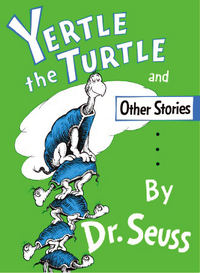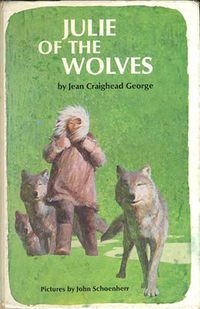- - - - -
"Chandra doesn't make fun of you for what you meant to say," some friends like to say. "She makes fun of you for what you actually said."
- - - - -
"Beautiful Aurelia, I've come here with a view of asking you to marriage me. I know I seems an insane person--because I hardly knows you--but sometimes things are so transparency they don't need evidential proof." (Richard Curtis, Love Actually)
- - - - -
I found myself distinguishing myself from her in college: I wasn't the snippy English Major who told you that you really meant lay, not lie (donttellmewhatImeanttosay), I was the nice English Major who would correct your papers (and silently, and with only slight eyebrow activity, judge your grammar).
- - - - -
Ya know, it's hard out there for an English major.
Nobody's written an Academy Award-winning song about it, but it's true. (I'm sure the same principle applies to anyone and their particular specialty/obsession/fandom, but I was an English Major and this is my blog so that's what we're talking about today.) This isn't meant to be defensive or reactive--just a little trip inside the mind of your favorite word nerd...
A) This Is Just the Way My Brain Works. Your eyes give you away, but it's not true: I'm not trying to show off (...most of the time) or make you feel foolish, but when English is misused my brain makes a little tweaky sound, like when you're overzealous in cleaning a mirror. It's jarring, and, particularly when the error is in writing or in some other way official, frustrating. I don't tally up how often I've caught errors from this person or that organization, and I don't have an internal maniacal laugh when I suggest that we know how to spell "mannequin" prior to using it in our PowerPoint. I just want you to sound intelligent, and I want the poor and ever-shifting English language to be treated as nicely as possible as long as we're at it. (Part A-2 is I Don't Actually Correct Everything--the times I speak up are only the times when it's particularly problematic or, admittedly, when I'm predisposed to get annoyed... Or, yes, show off...)
B) I Don't Talk the English Perfect-like, Either. Case in point, just as I started writing this post, I texted my friend Anna and used your instead of you're. In proofing this, I caught the wrong principal/principle in the opening paragraph. There will be something else I inevitably will miss until after I've clicked Publish. I make stupid mistakes as consistenly as anyone else, and have occasionally had the, "I've been mispronouncing that word for 15 years" moment. (I learned only a couple years ago that the expression was not "up and Adam"--I didn't know how that made sense, but I used it anyway--but "up and at 'em.") And I trip over my own simple words endlessly: favorites include "Kia Chat" instead of my coworker's Chia pet cat, and "baple macon bar" in place of Voodoo Donuts' slab of divine deliciousness. And while I'm quick to make fun of myself on this score--the aforementioned "Chandra Doesn't Make Fun..." rule works both ways, after all--I'm equally amused by others' reactions, frequently rendered in all-caps. My hold on this language is faulty at best! So let this be a place of public confession: that most recent time you saw me epically fumble this beloved language of mine? It won't be the last time...
C) The Newly-Learning Are Awesome. "He would drive you crazy," she says, describing a friend of hers, "English is his third language, so all his sounds are mixed up." I'm hurt by this--and do my best to correct her assumption. As someone who spent 6 years in French classes only to have, at her peak, a vague competence with the accent and a toddler's range of vocabulary, I am awed and amazed at anyone actively gaining mastery of a second language. (This extends to learning a first language--I don't snag small children by the ears and correct their subject-verb agreement, I swear.) I am, in fact, in love with the beauty and confusion of shifting language to language, and I find learners' errors and missteps fascinating and endearing rather than upsetting. Some of my fondest memories of my six weeks in Argentina include helping English learners to refine and understand the strange hiccups of any language, particularly ours. I can't imagine I'll ever be able to think of this and not see Euge's scandalized face when she heard me say "schmooze" and though I meant "smooch." And yes, our English lessons included the occasional dollop of Yiddish. Naturally.
D) In Which I Try Awfully Hard Not to Be My Grandmother. There are many wonderful things about my paternal grandmother, so please don't misunderstand, but she was nothing short of infuriating in her defense of The English Language As It Was When She Was an Undergraduate. One of the things I find most fascinating about language is its life. Each generation shifts tone and emphasis, adding their own words and labeling others with an italicized "Archaic." Each infusion of peoplegroup brings with it a smattering of new vocabulary. And I am of the same stock as my grandmother: it's difficult not to lurch into lecture, to demand that the old ways--which are really quite new, so, more accurately, your ways--are respected and bowed to. (She's been gone 5 years and I still can't say "short-lived" without feeling her distaste in my allowing the short i rather than the long. I still say it,but I feel the judgment.) At only 30, I already blanch with seasickness as my language shifts beneath my feet: "nu-kyu-ler" becomes an acceptable (albeit secondary) pronunciation for, and the next ten years--possibly five--will see "irregardless" earn a Websterian stamp of approval. I will want to insist that these are wrong, I will want to detail how simple it is to be right--but I will try very hard to recollect an 11-year-old self, already in love with language and rolling my eyes at Gramma. This love of mine is a living thing, and I must let it move and breathe and renew itself, as it did before I learned to speak, and will long after my lips are dust.
I love language, and more specifically English (though to be fair, aside from French I haven't given anybody else a shot)--and like any love, I take it personally--probably too much. I don't get defensive about many things, but using words well is one of them. If my defensiveness has ever proved offensive to you, I ask forgiveness in the spirit of the unrequited frustration of a woman and the words that cannot love her back.







